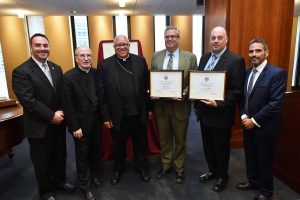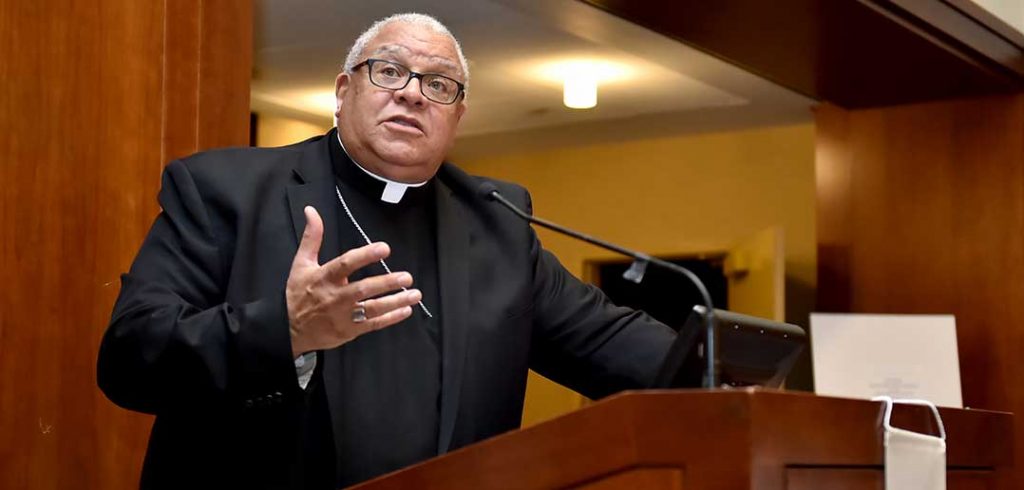Catholic schools have done a great job staying true to their unique identity.
But if they are going to thrive, said a Jesuit bishop at a June 1 Fordham event, they need to improve academic standards.
Speaking at the 22nd Annual Catholic School Executive Leadership Dinner hosted by the Graduate School of Education (GSE), Bishop George V. Murry, SJ, cautioned that demographic shifts have brought Catholic schools to a crossroads. When parents can choose a public education that’s free, tuition-dependent schools need to raise their bar.
“Many of our Catholic schools are exceptional in the quality of education. But we also know that if we’re honest, we have many schools that are mediocre,” said Bishop Murry, who is chairman of the board of directors of the National Catholic Education Association. “We have to challenge ourselves in terms of quality of education to not simply be good enough, but to be … better than the public schools that are around us.”
Bishop Murry, who acts as chair of the U.S. Conference of Catholic Bishops Education Committee, said that a “living faith, academic achievement, and self-discipline have long been hallmarks” that are worth preserving in Catholic schools.

The GSE event, inspired by the Jubilee of Mercy proclaimed by Pope Francis, recognized leaders of ‘Schools of Charity and Mercy’ who advance school programs that teach and practice the spiritual and corporal works of mercy in unique ways. Representatives from schools from the Archdioceses of New York, Newark, and Hartford, and the Dioceses of Albany, Bridgeport, Brooklyn, and Rockville Centre attended. Fordham’s own Dorothy Day Center for Service and Justice was also honored.
Joseph M. McShane, SJ, president of Fordham, compared the honorees’ work to that of the U.S.-based De La Salle Christian Brothers at Bethlehem University in the West Bank—a place he had visited the week before during a trip to the Middle East.
Bethlehem is filled with grinding poverty and despair, he said, and there’s a sense of apprehension at every turn. The university campus is an oasis in the city, however—one where Muslim and Christian students meet and take on the “responsibility to build a world in Palestine, which is a world of peace, where [students] will learn that [they] are Palestinians together … men and women of faith who can build a future,” Father McShane said.
“This is your story,” he told the honorees. “I remind you that the Christian Brothers who are there [in Bethlehem] were educated by you. They have the experience you gave them: excellence with purpose and a sense of responsibility to transform the world. They took that message to a very barren place, a place of fear, and made it a place of empowerment and transformation.”

